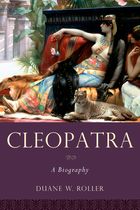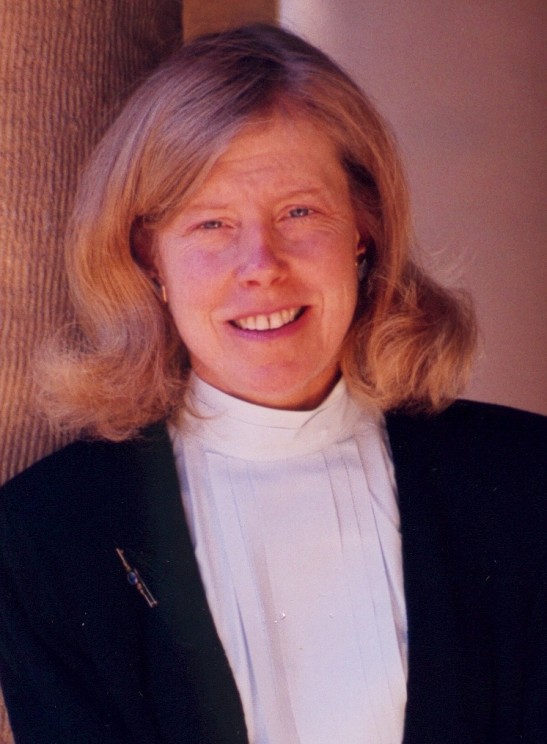new posts in all blogs
Viewing: Blog Posts Tagged with: roller, Most Recent at Top [Help]
Results 1 - 4 of 4
How to use this Page
You are viewing the most recent posts tagged with the words: roller in the JacketFlap blog reader. What is a tag? Think of a tag as a keyword or category label. Tags can both help you find posts on JacketFlap.com as well as provide an easy way for you to "remember" and classify posts for later recall. Try adding a tag yourself by clicking "Add a tag" below a post's header. Scroll down through the list of Recent Posts in the left column and click on a post title that sounds interesting. You can view all posts from a specific blog by clicking the Blog name in the right column, or you can click a 'More Posts from this Blog' link in any individual post.

By: Lauren,
on 2/3/2011
Blog:
OUPblog
(
Login to Add to MyJacketFlap)
JacketFlap tags:
Law,
tumblr,
roller,
Africa,
*Featured,
Sociology,
fashion,
feminism,
obesity,
beauty,
body image,
Online Resources,
fat,
Cleopatra,
Duane Roller,
The Oxford Comment,
oxford comment,
ben daniels band,
fat acceptance,
beauty bias,
berg fashion library,
body politics,
deborah rhode,
fashion institute of technology,
jessica jarchow,
margitte kristjansson,
tangledupinlace,
deborah,
rhode,
riotsnotdiets,
jarchow,
margitteleah,
Add a tag
In this, the 10th Oxford Comment, Lauren and Michelle investigate what makes a classic beauty icon, learn about appearance-based discrimination, talk body politics, and discover the threads that tie fashion to beauty.
Want more of The Oxford Comment? Subscribe and review this podcast on iTunes!
You can also look back at past episodes on the archive page.
Featured in this episode:
Historian, archaeologist, and classical scholar, Duane W. Roller is emeritus professor at Ohio State University and the author of eight books, the most recent of which is Cleopatra: A Biography. Read his OUPblog posts here.


* * * * *
Deborah L. Rhode is the Ernest W. McFarland Professor of Law and Director of the Center on the Legal Profession at Stanford University. She is the author or editor of over twenty books, including The Beauty Bias: The Injustice of Appearance in Life and Law.


* * * * *
Margitte Leah Kristjansson is a PhD student in communication at UCSD whose work is situated within the emerging field of fat studies. She is interested in all things fat, and blogs about her interests at margitteleah.com and riotsnotdiets.tumblr.com. Margitte recently completed a documentary on fat female bodies and visibility available for viewing here.
Jessica Jarchow is a body acceptance activist in San Diego, CA. When she’s not blogging at
0 Comments on The Oxford Comment: Episode 6 – BEAUTY! as of 1/1/1900
Michelle Rafferty, Publicity Assistant
Cleopatra’s sexual liaisons have made her famous for being the femme fatale of classical antiquity and a heroine in the greatest love affair of all time. In Cleopatra: A Biography historian, archaeologist, and classical scholar Duane Roller aims to clear up the infamous queen’s identity—from the propaganda in the Roman Republic all the way to her representations in film today. And what, according to Roller, do the cold hard facts reveal? A pragmatic leader trying to save her kingdom as the reality of a full blown empire loomed ahead.
You can listen to the rest of the series here.
Michelle Rafferty: You just touched on Cleopatra’s relationships with Marc Antony and Caesar. I’m wondering if you can talk a little bit more about the infamous love triangle between the three. What do we know? Was there any love there, or was it all about power?
Duane Roller: These were powerful people who had powerful needs, yet they obviously were a man and a woman in these two different cases and obviously personal things can become mixed in to this in a way perhaps less likely if it were a Roman consul dealing with a king. But now we have a Roman consul dealing with a queen. But clearly the political agenda is the most important, and that’s generally true with royal marriages through most of history, right down to modern times as we well know. The marriage is concocted because of the benefits that will accrue from it.
Caesar came to Egypt in 48 BC, the Romans had long been involved in Egypt, the Romans had a commission from Cleopatra’s father, that if the children, that is Cleopatra and her siblings, could not get along, the Romans were to step in and straighten things out. That’s exactly what Julius Caesar did, supporting Cleopatra’s claims to the throne against those of her surviving siblings. But obviously dynamic man, meets dynamic woman and the result what is what one would expect, and Cleopatra produces this child Caesarian who serves both her purposes as an heir and Caesar’s purposes because he did not have a son.
And much the same can be said about Marc Antony. Marc Antony comes to the Eastern Mediterranean after the assassination of Caesar, after Caesar’s assassins Brutus and Cassius have caused a lot of trouble in the Eastern Mediterranean, he has to straighten things out, he has to rely on the existing powers in the area. Cleopatra is the most important ruler in the area at that time, but again it moves to a personal level very quickly. But these things not mutually exclusive, and we shouldn’t see it as an “either or.” Obviously Antony and Cleopatra have become one of the great love stories of history, and there’s a certain truth to that. But again they had an agenda. Cleopatra needed more children to strengthen the inheritance in her kingdom. Antony’s motives are a little more uncertain, but obviously he and Cleopatra were very much smitten with one another and it fit their political needs.
Rafferty: Why did their relationship end in tragedy? Or, their rule end in tragedy?
Roller: Well that’s a long and complicated one. Antony of course was tangling with his brother-in-law Octavian. He was legally married to Octavian’s sister, and so there’s a personal dimension t
Michelle Rafferty, Publicity Assistant
Cleopatra’s sexual liaisons have made her famous for being the femme fatale of classical antiquity and a heroine in the greatest love affair of all time. In Cleopatra: A Biography historian, archaeologist, and classical scholar Duane Roller aims to clear up the infamous queen’s identity—from the propaganda in the Roman Republic all the way to her representations in film today. And what, according to Roller, do the cold hard facts reveal? A pragmatic leader trying to save her kingdom as the reality of a full blown empire loomed ahead.
For more on your favorite queen tune in for Day 3 tomorrow. You can listen to the rest of the series here.
Michelle Rafferty: So I think one of the most common perceptions of Cleopatra today is that we think of her as this sultry seductress, but you argue that this simply isn’t true. What do we know about Cleopatra’s romantic liaisons?
Duane Roller: Well as far as we know, she only had two relationships in 18 years, and I don’t think that qualifies by any standard to make her a “sultry seductress.” Moreover, these two relationships with Julius Caesar and Marc Antony were very carefully chosen. Both the men were the most powerful men in Rome in their era. And I said a moment ago, she was very much concerned with producing an heir. And if you are going to produce someone who is qualified to take over your kingdom and keep it going, you want to make sure the other person involved in producing the heir is of high quality. There was no one within her family she could rely on, there was no one within the dispossessed royalty of the Eastern Mediterranean. But Rome was in ascendancy, Rome was the great power, so why not have liaisons with Romans and produce a really first class heir. But that’s all we know about. Obviously we weren’t in her bedroom every night in terms of the sources, but as far as we can tell she chose her relationships very carefully and they were only two in number.



Michelle Rafferty, Publicity Assistant
Cleopatra’s sexual liaisons have made her for being the femme fatale of classical antiquity and a heroine in the greatest love affair of all time. In Cleopatra: A Biography historian, archaeologist, and classical scholar Duane Roller aims to clear up the infamous queen’s identity—from the propaganda in the Roman Republic all the way to her representations in film today. And what, according to Roller, do the cold hard facts reveal? A pragmatic leader trying to save her kingdom as the reality of a full blown empire loomed ahead.
For more on your favorite queen tune in for Day 2 tomorrow.
Michelle Rafferty: Your new book Cleopatra argues that much of what we think about Cleopatra is sensationalized or untrue. Why is it that our understanding of the Egyptian queen is so skewed, and who is the real Cleopatra?
Duane Roller: Well in terms of your first question, about why is the understanding so skewed, there are really two reasons. One is that much of what we know about her is from her enemies who defeated her, who obviously wanted to create her as a genuine threat to the Roman Republic, and indulge in a great deal of propaganda as to how horrible this women was, all of the terrible, nasty things she did, and obviously there’s a certain amount of gender issues built into this as well. The second is reason is that because Cleopatra was such a fascinating character, she became almost an icon in art and literature and drama, starting probably with Shakespeare’s Antony and Cleopatra, but continuing down through a vast number of representations in the visual arts, Delacroix and others, opera, masonry’s Cleopatra, and of course in the 20th century ending up with well known film and cinema representations. And so that of course emphasizes the scandalous and dramatic by necessity, and has kind of overwhelmed the relatively scant information about the women herself.
Who is the real Cleopatra? Well she was a woman who inherited a dying kingdom, who was the only woman to rule alone in all of classical antiquity, and tried to salvage the situation against the overwhelming power of Rome. She also, if her kingdom was to survive, she had to produce heirs. And that meant personal involvement in the way that a male ruler would not have. She was a linguist, she was a published author, a skilled military commander—all of which makes her a fascinating woman without necessarily some of the scandalous material that we’ve come to know and love so much about her life.







